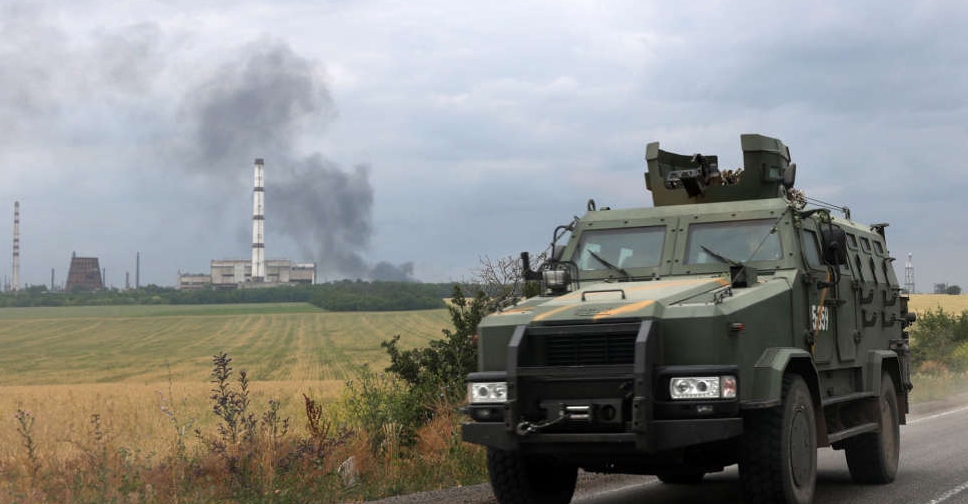
Ukraine signalled on Friday its troops were withdrawing from the city of Sievierodonetsk, the scene of weeks of intense bombardments and street fighting, in a move that would be a significant setback in its struggle to defeat Russian forces.
Provincial governor Serhiy Gaidai said troops in the city had already received the order to move to new positions, but he did not indicate whether they had already done so or where exactly they were going.
"Remaining in positions smashed to pieces over many months just for the sake of staying there does not make sense," Gaidai said on Ukrainian television.
The troops will "have to be withdrawn", he said.
Gaidai was speaking on the day that marked four months since Russian President Vladimir Putin sent tens of thousands of troops over the border, unleashing a conflict that has now killed thousands of combatants and civilians, uprooted several million people, and has seen Ukrainian cities blasted to bits by Russian artillery and air strikes.
The war has also fuelled a global energy and food crisis.
Some of the heaviest fighting of the war has taken place in Sievierodonetsk, where street-by-street combat has raged for a month with Russia painstakingly taking more ground.
The battle is key for Russia to establish control over the last remaining Ukrainian-held sliver of Luhansk province, which along with Donetsk makes up the Donbas region, Ukraine's industrial heartland.
Sievierodonetsk's fall would leave only Lysychansk - its sister city on the western bank of the Siverskyi Donets River - remaining in Ukrainian hands.
FORCES 'HAD TO WITHDRAW'
"Our forces had to withdraw and conduct a tactical retreat because there was essentially nothing left there to defend. There was no city left there and, secondly, we could not allow them to be encircled," said Oleksander Musiyenko, a Kyiv-based military analyst.
Russia's tactics since its troops failed to capture the capital Kyiv early in the war involve ferocious bombardments of cities and towns followed by assaults by ground troops.
Analysts say the Russian forces are taking heavy casualties and face problems in leadership, supplies and morale. Nonetheless, they are grinding down Ukrainian resistance and making incremental gains in the east and south.
Ukraine's general staff said on Friday the Russians were firing from tanks, mortars, artillery and jets, as well as mounting air strikes near Lysychansk and Sievierodonetsk and nearby towns. Reuters could not immediately verify the reports.
Ukrainian troops had repelled a Russian attack on the southern outskirts of Lysychansk, Governor Gaidai wrote on the Telegram app. But Russia had taken control of the village of Mykolaivka, located near a highway to Lysychansk, he said.
Ukraine's foreign minister played down the significance of the possible loss of more territory in the Donbas.
"Putin wanted to occupy the Donbas by May 9. We are on June 24 and still fighting. Retreating from a few battles does not mean losing the war at all," Dmytro Kuleba said in an interview with the Italian newspaper Corriere della Sera.
Russian control of the Donbas would allow it to link up with the already occupied Crimea to the south, which Moscow annexed from Ukraine in 2014.

 UK inquiry finds 'chilling' cover-up of infected blood scandal
UK inquiry finds 'chilling' cover-up of infected blood scandal
 Iranian President Raisi killed in helicopter accident, state media says
Iranian President Raisi killed in helicopter accident, state media says
 ICC prosecutor seeks arrest warrants for Israeli, Hamas leaders
ICC prosecutor seeks arrest warrants for Israeli, Hamas leaders
 Assange given permission to appeal against US extradition
Assange given permission to appeal against US extradition
 Israel intends to broaden Rafah sweep, Defence Minister tells US
Israel intends to broaden Rafah sweep, Defence Minister tells US




